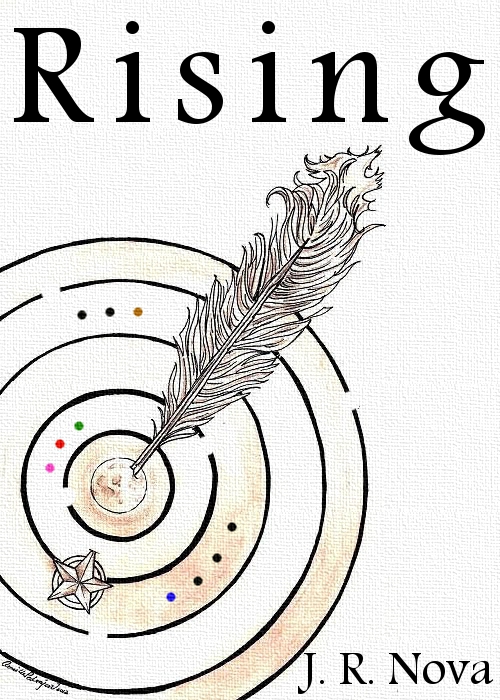There are many ways of looking at health. We can live a
healthy lifestyle to prolong life, or to avoid future disease, or
because it's interesting or fun or a challenge.
I focus on my health to feel good right now. I am less interested in
longevity, or avoiding disease. I do not feel I can control the
future.
What I can control, to an
extent, is my current body. This is far easier and less worrisome
than attempting to live to be one hundred, or getting through life
without getting sick.
I am going to die. This is
an undeniable fact. It's not something I wish to expend energy to avoid. If living a
healthy lifestyle in order to feel good right now leads me to live
longer, cool. If it doesn't, what am I going to do?
I am going to get sick.
This is a fact. It's very likely that I will get cancer one day, or
heart disease, or diabetes, or a thousand other nasty things. The
older I get, the more likely illness becomes.
One of the reasons why
cancer, heart disease, and diabetes rates are so high is because we
have an aging population. Over 25% of the population is older than
the average life expectancy in 1900! The “fifty and older” crowd
has doubled in the last century, and half of that population group
are over age sixty-five.
The rate of disease skyrockets as people get
into their sixties, seventies, and eighties, as it should. Disease,
often caused by old age (the body's growing inability to heal
itself), kills almost everyone eventually.
All we've managed to do in
the twentieth century is push the natural course of disease back a
couple of decades, partly through medical technology, and partly
through a higher awareness of fitness and diet, but it catches up to
us eventually no matter what precautions we take—we cannot put
death off forever, nor can we put off disease indefinitely, so long
as it is a process of dying.
There's no way to predict
my future, but I have a great power over my current health, over how
I feel upon waking and how I feel upon going to bed, and the time
between. How I feel today is the only thing that I can control, and
it is the only thing that matters.
By eating natural plant
foods, lean meats, and healthy fats, I can feel better both
physically and emotionally because these foods have a complete range
of necessary vitamins, minerals, and antioxidants. By eating less, and implementing daily periods of fasting, I can limit the ill effects that sugar and other carbs have on the body. By avoiding added
chemicals, I can
keep my brain and body healthy and working at its best. I can feel
alert, energetic, and happy.
But diet is not the only
aspect of health. Physical fitness is a as important. Exercising early in the morning grounds me for the rest of
the day. I feel more confident and energized on days that I lift
weights, ride my bike, and stretch. I stick to a healthy diet more
easily, and I have a sense of well-being that lasts late into the
evening.
There's also an emotional
component to health. Emotional well-being isn't something that is
given much attention in our society, but it is at least as important. Taking care of one's
emotional health is simply finding a way to stay in-tune with
the world around us. Emotional health is a sense that one is “all
right.”
Stress,
which if compared to cigarettes and fast food, may be an even
deadlier factor for disease. Prolonged stress can rapidly annihilate
the body's organs and immune system. Emotional health counteracts stress far better than diet and exercise.
When I do not fulfill
these three key factors I feel “off.” I've learned to take care of this feeling quickly, because
the longer it's there the harder it seems to be gotten rid of. This is why I focus on the immediate present rather than on
the far away future. I can live for tomorrow and very easily miss out
on today. I would never want to be old and healthy and not have
enjoyed my life, or to only remember things as memories and to not
have actually experienced them!
Staying healthy is about
making daily, conscious adjustments. It's not just eating the same
“health” food over and over again and running on the same
treadmill for forty-five years, it's managing myself, figuring out
what makes me feel good, and applying it to my daily life.
My health
has become a great experiment in which I try many different things in
order to figure out what works for me. I've come to realize that
we're all different, which is why the experimentation is necessary
for each of us. We don't know what will work until we test it, and
anything can work for one person and not for another.
An overall consistency is
more important than a rigid constant state of perfection, for to
enjoy good health it's necessary to experience some ill health
once in a while, or good health itself becomes too normal to be
appreciated.
Falling off the wagon, then, isn't the end of the
world. If I trash my body for a weekend on the sofa eating ice cream
and pizza, I'll have enjoyed the food and the time off, and when I
get back to eating healthy and exercising I will feel like a million
bucks. This, to me, is also exercising my emotional health—not
punishing myself for my imperfections or cravings.
The contrast is
what good health really, truly is. It's a cycle, like everything else
in this world. The end of the cycle isn't a tragedy, but spending an
entire lifetime trying to escape it is.
Be nice to yourself. What
else do we really have to live for?










